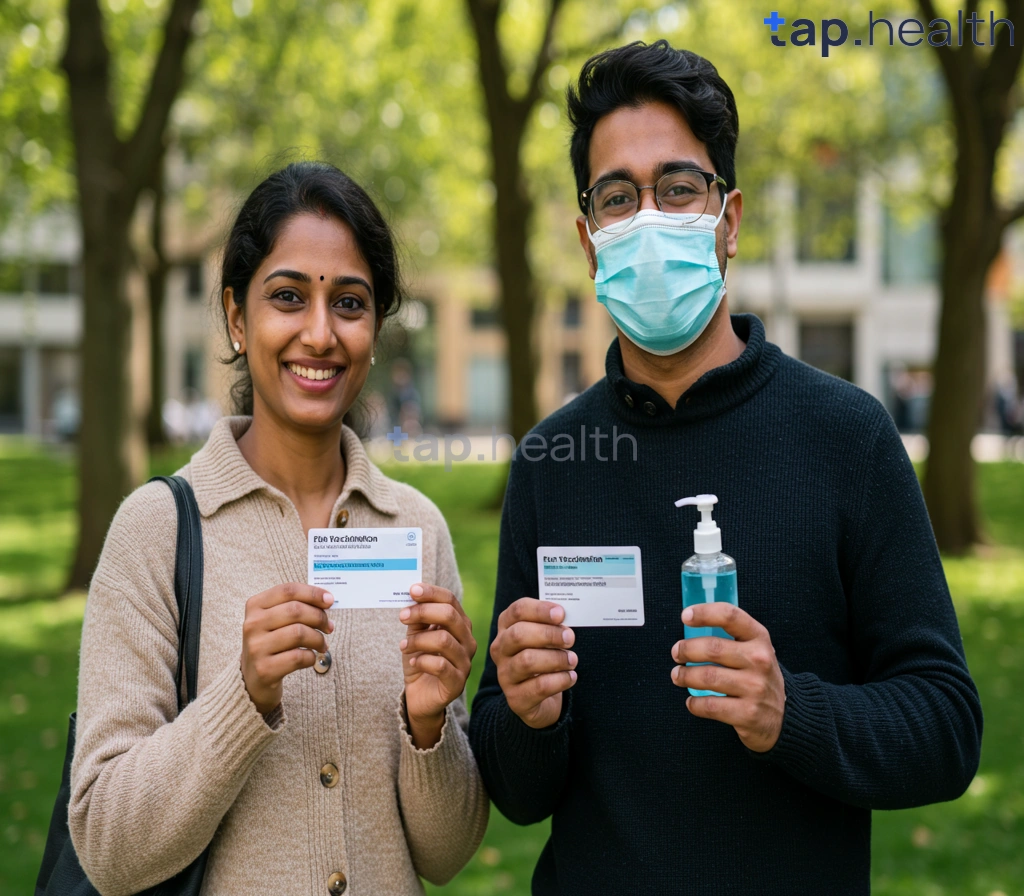Table of Contents
- Flu Prevention: A Guide for Diabetic Families
- Protecting Diabetic Family Members From the Flu
- How Diabetics Can Reduce Flu Risks This Season
- Is Your Diabetic Family Prepared for Flu Season?
- Strengthening Immunity: Flu Prevention Tips for Diabetics
- Frequently Asked Questions
- References
Winter’s chill brings more than just cozy nights; it also ushers in flu season, a time of particular concern for families with diabetic members. Protecting your family, especially those with diabetes, from the flu requires a proactive approach. This blog post dives into effective flu prevention strategies specifically tailored for diabetics, addressing their unique vulnerabilities and highlighting simple yet powerful steps you can take. We’ll explore vaccination, hygiene practices, and lifestyle adjustments to help keep your loved ones healthy and safe. Let’s learn how to navigate flu season with confidence and minimize the risk for everyone.
Flu Prevention: A Guide for Diabetic Families
Flu season poses a significant threat to individuals with diabetes, making preventative measures crucial. Especially in hot and humid climates typical of many Indian and tropical countries, the added challenges of heat and potential for other infections necessitate a proactive approach. Up to 80% of Type 2 diabetes cases can be delayed or prevented through lifestyle changes, highlighting the importance of proactive health management. This includes diligent flu prevention strategies.
Protecting Your Family: Practical Steps
Prioritize vaccination: The flu vaccine is the most effective preventative measure. Ensure all family members, especially those with diabetes, receive their annual flu shot. Consult your doctor about the best timing and vaccine type.
Maintain good hygiene: Frequent handwashing with soap and water, especially after being in public places, is paramount. Encourage regular sanitization of frequently touched surfaces within your home. In tropical climates, this is especially vital due to increased exposure to germs.
Boost immunity: A healthy immune system is key. Focus on a balanced diet rich in fruits, vegetables, and whole grains. Regular exercise, adequate sleep, and stress management also play vital roles. These lifestyle changes, as mentioned, can significantly impact diabetes management and overall health. For parents of children with Type 1 diabetes, managing these aspects is especially crucial, as detailed in our guide, Tips for Parents of Kids with Type 1 Diabetes: Complete Guide.
Taking Action in Indian and Tropical Climates
The hot and humid conditions common in many regions of India and other tropical countries can present unique challenges during flu season. Staying hydrated is crucial, especially for diabetics. Remember to consult your doctor for specific recommendations tailored to your family’s needs and your region’s climate. Taking these steps proactively can significantly reduce your family’s risk of contracting the flu. For expecting mothers, it’s also important to understand which flu medications are safe during pregnancy. You can find helpful information in our article, What Flu Medications Are Safe During Pregnancy?
Protecting Diabetic Family Members From the Flu
Flu season poses a significant risk to individuals with diabetes, especially in hot and humid climates prevalent in many Indian and tropical countries. Diabetics are more susceptible to severe complications from the flu, making preventative measures crucial. This heightened vulnerability stems from their weakened immune systems, often leading to slower healing and increased risk of secondary infections. For example, nearly 15% of diabetics experience foot ulcers in their lifetime, with high amputation risks—a risk dramatically increased by complications from influenza. Protecting your diabetic family members requires proactive measures beyond the typical flu shot. Understanding the impact of heat on diabetic individuals is also important; you can read more about this in our article, How Does Heat Affect Diabetics?.
Prioritizing Vaccination and Hygiene
The annual flu vaccine is the first line of defense. Ensure all diabetic family members receive the recommended vaccination, particularly those with underlying health conditions. Beyond vaccination, diligent hygiene practices are vital in preventing flu transmission. This includes frequent handwashing with soap and water, especially after being in public places. In hot and humid climates, maintaining good hygiene is even more critical due to the increased spread of respiratory viruses. Encourage regular cleaning and disinfection of frequently touched surfaces within the home.
Managing Underlying Conditions
Effective diabetes management is key to strengthening the immune system. Maintaining stable blood sugar levels is paramount. Regular monitoring and adherence to prescribed medication are essential. A healthy diet, rich in fruits and vegetables common in Indian and tropical cuisines, further boosts immunity. Sufficient rest and stress management also play crucial roles in strengthening the body’s natural defenses against the flu. Remember, consulting your physician for personalized advice tailored to your family member’s specific health needs is essential. Prioritize their well-being; their health is your family’s wealth. It’s also important to understand that the immune systems of those with diabetes, particularly Type 1, can be more vulnerable. Learn more in our article: Are Type 1 Diabetics Immunocompromised?
How Diabetics Can Reduce Flu Risks This Season
The flu season poses a significant threat, especially for individuals with diabetes. Research shows that those with diabetes, particularly smokers, face a doubled mortality rate due to cardiovascular complications exacerbated by flu-related illnesses. This highlights the crucial need for proactive flu prevention strategies in tropical and Indian climates, where viral infections are prevalent. Protecting yourself is vital, not just for your health, but for the well-being of your family.
Prioritizing Vaccination and Hygiene
The most effective way to combat the flu is through annual influenza vaccination. This is especially crucial for diabetics in regions like India, where diverse strains circulate. Beyond vaccination, diligent hygiene practices are essential. This includes frequent handwashing with soap and water, especially after being in public places or touching frequently used surfaces. In hotter climates, maintaining good personal hygiene is even more crucial to prevent the spread of germs.
Managing Blood Sugar and Lifestyle
Effective blood sugar management is key. Consistent monitoring and adherence to your prescribed diabetes treatment plan are critical in strengthening your immune system and reducing your susceptibility to infections. A balanced diet rich in fruits, vegetables, and whole grains, combined with regular exercise, is vital for maintaining overall health and resilience against illnesses like the flu. Remember to stay hydrated, especially in tropical climates, as dehydration can weaken your immune response. For tips on creating delicious and healthy meals, check out our guide on Creating Diabetes-Friendly Dishes for the Holidays.
Seeking Prompt Medical Attention
Should flu symptoms appear (fever, cough, body aches), seeking immediate medical attention is vital. Early diagnosis and treatment can prevent complications. Diabetes increases the risk of severe flu complications, so don’t delay seeking professional medical advice. In India and other tropical countries, access to prompt healthcare is crucial for managing both diabetes and influenza effectively. Understanding how diabetes affects your respiratory system can also help you better prepare and manage flu symptoms. Learn more by reading How Does Diabetes Affect the Respiratory System?. Take proactive steps to protect yourself and your family this flu season.
Is Your Diabetic Family Prepared for Flu Season?
The flu season poses a significant threat to individuals with diabetes, especially in hot and humid climates like those prevalent across many Indian and tropical countries. People with diabetes, particularly those with type 2, are often more susceptible to severe flu complications. Over 80% of Type 2 diabetics have insulin resistance as a key underlying factor, impacting their immune response and making them more vulnerable to infections. This heightened vulnerability necessitates proactive measures to protect your family.
Practical Steps for Flu Prevention
Maintaining optimal blood sugar control is paramount. Consistent monitoring and adherence to your prescribed diabetes management plan are crucial first steps. This includes carefully managing your diet, engaging in regular physical activity, and taking your medications as directed. Remember, even minor fluctuations in blood glucose levels can weaken your immune system. For example, understanding the glycemic index of foods, like those discussed in our article, Can Diabetics Eat Plums? A Comprehensive Guide, can significantly aid in blood sugar management.
Beyond blood sugar control, prioritize good hygiene practices. Frequent handwashing with soap and water, especially after being in public places, is essential. Encourage everyone in the family to cover their coughs and sneezes with a tissue or their elbow. Staying adequately hydrated is also vital, especially in tropical climates where dehydration can exacerbate health problems.
Regional Considerations and Seasonal Precautions
In tropical regions, the flu season might not follow the same pattern as in temperate zones. Awareness of local health advisories and seasonal changes is critical. Consult your physician about the suitability of a flu vaccine, as it’s a powerful tool in mitigating flu risk for diabetics. Early detection is key; seek medical attention promptly if anyone experiences flu-like symptoms. It’s also important to differentiate between the common flu and other illnesses, such as Understanding Eye Flu: Everything You Need to Know – Tap Health.
Taking Charge of Your Family’s Health
Protecting your diabetic family members from the flu requires proactive steps, vigilance, and adherence to sound medical advice. By implementing these strategies and closely monitoring your family’s health, you can significantly reduce their risk of contracting and experiencing severe complications from influenza. Consult your doctor for personalized advice and a tailored preventative plan suited to your family’s needs and your region’s climate.
Strengthening Immunity: Flu Prevention Tips for Diabetics
Diabetes weakens the immune system, making individuals more susceptible to infections like the flu. This is particularly crucial in hot and humid climates prevalent in many Indian and tropical countries, where viral spread can be more rapid. Research shows that daily consumption of sugary beverages raises diabetes risk by 26%, highlighting the importance of managing blood sugar levels for better immune function. Maintaining healthy blood sugar is key to preventing flu.
Prioritizing Healthy Habits for Flu Prevention
Strong immune systems are vital, especially for those with diabetes. Focus on a balanced diet rich in fruits, vegetables, and whole grains. Reduce your intake of processed foods and sugary drinks, a key contributor to diabetes and a weakened immune response. Regular exercise, even short walks, boosts circulation and strengthens your body’s defenses. Prioritize adequate sleep; consistent rest is crucial for immune cell regeneration. In the humid tropical climates of India and other regions, staying hydrated is exceptionally important, especially during the flu season.
Targeted Strategies for Diabetics
Regular check-ups with your doctor are essential for managing your diabetes and monitoring your overall health. They can help you develop a personalized plan for flu prevention, including vaccination. The flu vaccine is highly recommended for diabetics, offering significant protection. Practice good hygiene, including frequent handwashing with soap and water. Avoid close contact with individuals who are sick. Consider wearing a mask in crowded places, especially during peak flu season. For more information on strengthening your immunity while managing diabetes, see our article on Boosting Immunity While Managing Diabetes.
Taking Action for a Healthier You
Protecting yourself from the flu is a crucial step in managing your diabetes and overall well-being. By incorporating these preventative measures into your daily routine, you can significantly reduce your risk of contracting the flu and maintain a healthier lifestyle, especially important in the unique climatic conditions of India and other tropical countries. Remember that managing diabetes effectively also benefits your heart health. Learn more about Protecting Your Heart from Diabetes: 5 Essential Steps. Consult your doctor today to discuss a personalized flu prevention plan.
Frequently Asked Questions on Protecting Your Family: Flu Prevention Strategies for Diabetics
Q1. Why are people with diabetes more vulnerable to severe flu complications?
People with diabetes have weakened immune systems, making them more susceptible to infections like the flu. High blood sugar levels can also worsen flu symptoms and increase the risk of complications.
Q2. What are the best ways to prevent the flu, especially if I have diabetes?
Annual flu vaccinations for all family members are crucial. Maintain good hygiene (frequent handwashing), eat a balanced diet, exercise regularly, get enough sleep, manage stress, and stay well-hydrated. Prompt medical attention is vital if flu symptoms appear.
Q3. How does managing my diabetes affect my risk of getting a severe case of the flu?
Effectively managing your diabetes—through proper blood sugar monitoring, medication adherence, and a healthy lifestyle—significantly strengthens your immune system and reduces your risk of severe flu complications.
Q4. What should I do if I develop flu symptoms while managing diabetes?
Seek medical attention immediately. It’s crucial to monitor your blood sugar levels closely and follow your doctor’s instructions regarding medication and treatment.
Q5. Are there any special considerations for people with diabetes living in hot and humid climates?
Staying well-hydrated is even more critical in hot, humid climates. Continue to diligently follow your diabetes management plan and consult your doctor for personalized advice on managing your health in your specific climate.
References
- A Practical Guide to Integrated Type 2 Diabetes Care: https://www.hse.ie/eng/services/list/2/primarycare/east-coast-diabetes-service/management-of-type-2-diabetes/diabetes-and-pregnancy/icgp-guide-to-integrated-type-2.pdf
- Children with Diabetes : A resourse guide for families and school. : https://www.health.ny.gov/publications/0944.pdf




